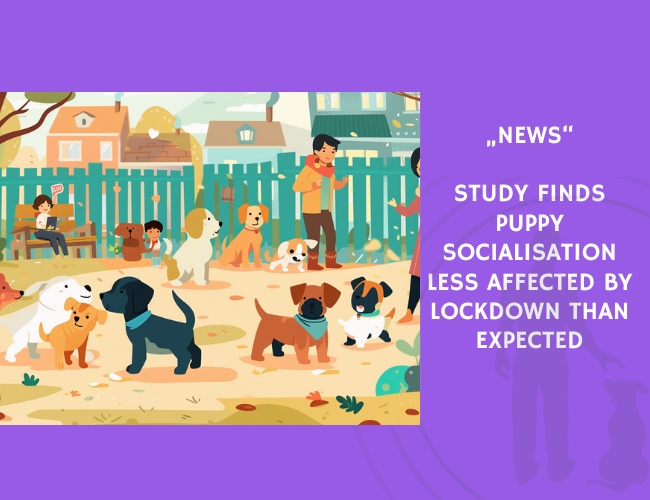How did pandemic restrictions shape puppies’ early life experiences? A new longitudinal study offers insight into how lockdown impacted social development in young dogs.
The COVID-19 pandemic raised serious concerns about the long-term impact of reduced early-life socialisation in puppies. But a 2024 study published in Animals journal suggests that lockdowns may have had a smaller effect on puppy socialisation than anticipated.
Led by R. Kinsman and colleagues, the study analyzed data from over six years (2016–2022), comparing the socialisation experiences of puppies aged 8–19 weeks and those around 6 months old across three timeframes: pre-, during, and post-lockdown. The study spanned participants from the UK and Republic of Ireland.
Younger puppies showed a steady increase in social experience types with age. Interestingly, while there were fewer experiences post-lockdown compared to pre-lockdown, no significant drop was observed between lockdown and non-lockdown periods. Most 6-month-old puppies continued to meet new people, other dogs, and children within a week of reporting, regardless of lockdown stage.
However, a notable finding was that puppies during lockdown experienced longer gaps between meeting new adults in their homes. While the quantity of interactions may not have dropped dramatically, the quality, context, and timing of these interactions may still play a role in shaping adult dog behavior.
The authors emphasize the need for future follow-up as the cohort ages, to better understand the behavioral impact of altered early-life socialisation patterns. Their findings challenge assumptions and highlight the adaptability of both puppies and their owners during extraordinary circumstances.










